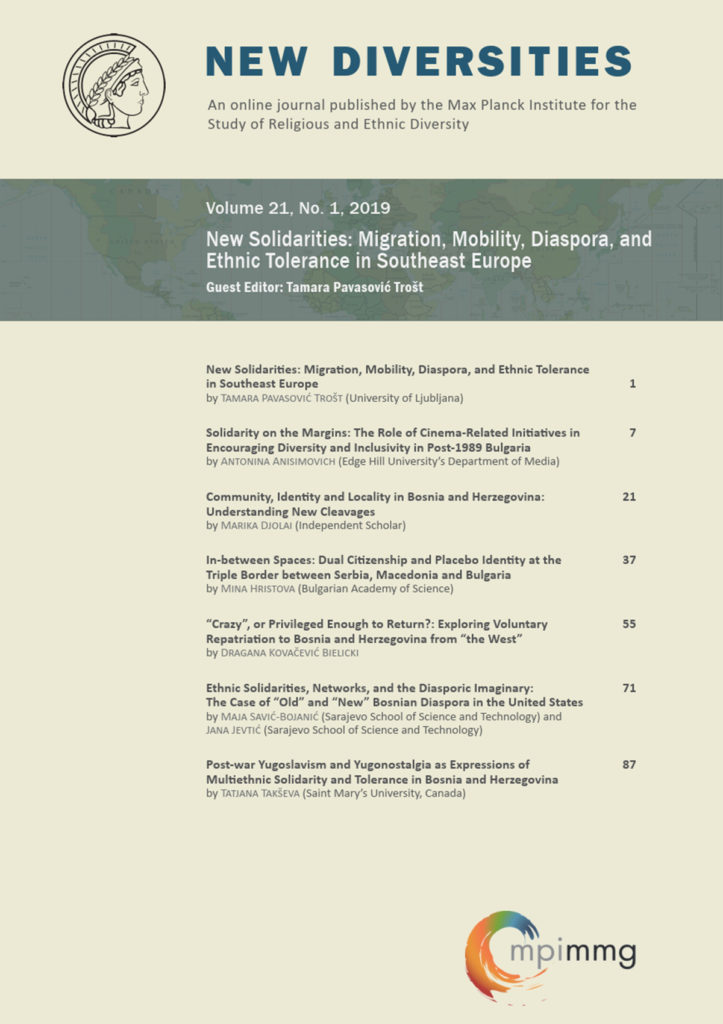Solidarity on the Margins: The Role of Cinema-Related Initiatives in Encouraging Diversity and Inclusivity in Post-1989 Bulgaria
by Antonina Anisimovich (Edge Hill University’s Department of Media)
To cite this article: Anisimovich, A. (2019). Solidarity on the Margins: The Role of Cinema-Related Initiatives in Encouraging Diversity and Inclusivity in Post-1989 Bulgaria. New Diversities, 21(1), 7–20. https://doi.org/10.58002/ne72-d427
In the light of the ongoing refugee crisis in Europe, hate speech directed at refugees and ethnic minorities in mainstream Bulgarian media has increased. As a response, several recent cinema-related grassroots initiatives in the capital city Sofia are challenging such negative representations and establishing a more open and constructive dialogue with the Other. I argue that such events have the potential to create interzones or conflictual dialogic spaces (Halle 2014), where the public sphere is constructed from below, providing an alternative to mainstream media and political discourse. Adopting the theoretical framework proposed by Schober (2013), this paper evaluates the political potential of cinematic events in creating a public space for encountering the Other, both physically (in the same cinema hall) and symbolically (through representations on screen). I focus on one such initiative, a series of film screenings organised by The House of Cinema and The Refugee Project in Sofia, examining the House of Cinema’s potential in promoting diversity by challenging the xenophobic mainstream discourse promoted in media.
Keywords: Bulgarian cinema, Bulgarian media, European identity, postcolonial studies, collective memory, national identity, refugee crisis, othering
New Diversities • Volume 21, No. 1, 2019
New Solidarities: Migration, Mobility, Diaspora, and Ethnic Tolerance in Southeast Europe
Guest Editor: Tamara Pavasović Trošt (University of Ljubljana)
- ISSN-Print 2199-8108
- ISSN-Internet 2199-8116
